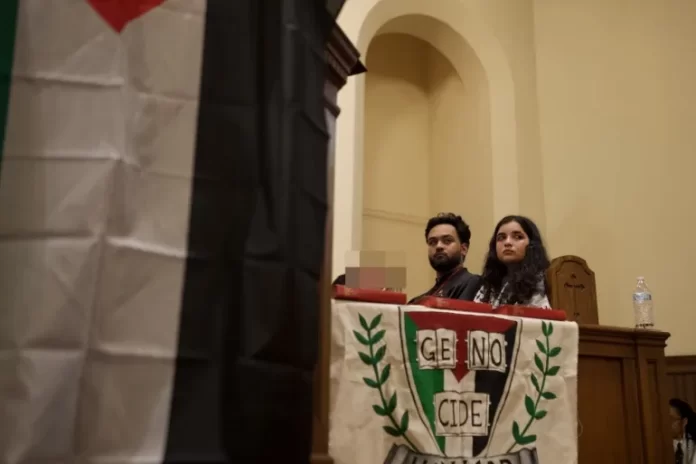10 Jun. 24: In a controversial move, Harvard University has delayed the graduation of 13 students who were actively involved in a pro-Palestine protest on campus. Despite a majority vote from the Faculty of Arts and Sciences in support of granting them degrees, the Harvard Corporation, the university’s governing body, decided to postpone their graduation ceremony.
The protest, which took place over three weeks, saw students participating in a pro-Palestine encampment on the university grounds. Among those affected is Asmer Asrar Safi, a 23-year-old international student studying social studies and ethnicity, migration, and rights at Harvard College.
Safi expressed frustration over the lack of transparency and communication from university administrators regarding the decision. “I am waiting for my appeals decision to come out,” Safi said in an interview with Al Jazeera. “My plans to attend the University of Cambridge with the Harvard-UK Fellowship are now in flux due to my degree status.”
Safi has been actively involved in pro-Palestine causes on campus since 2020, helping organize various events. The delay in graduation has left him and others uncertain about their future plans and academic pursuits.
The decision by the Harvard Corporation has sparked debate and criticism within the university community and beyond. Supporters of the affected students argue that they should not be penalized for exercising their right to peaceful protest and activism.
Meanwhile, Harvard University has defended its decision, stating that it is within its rights to withhold degrees based on the behavior of students, particularly when it affects the university’s reputation and values.
The delay in graduation for these students highlights the ongoing tensions surrounding issues of free speech, academic freedom, and activism on college campuses, particularly regarding sensitive geopolitical matters such as the Israeli-Palestinian conflict. As the situation continues to unfold, it raises questions about the balance between protecting academic freedom and maintaining institutional standards and decorum.




